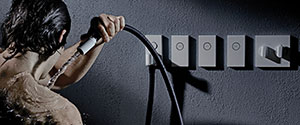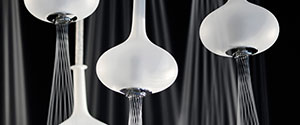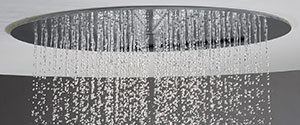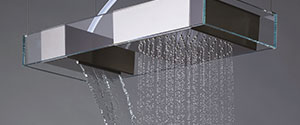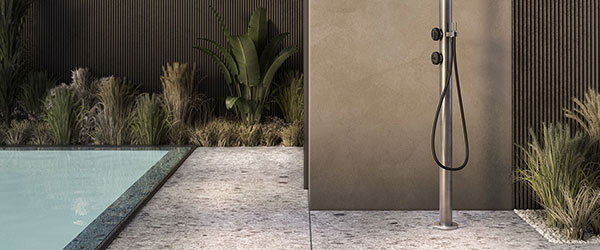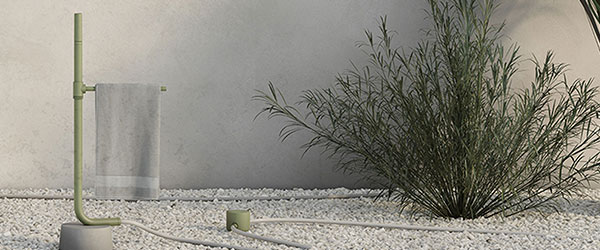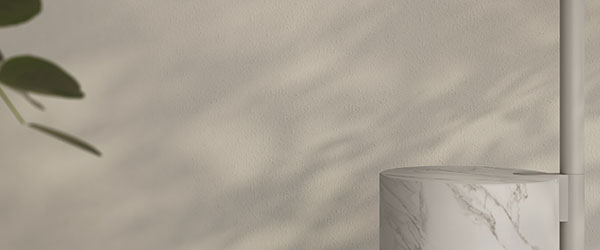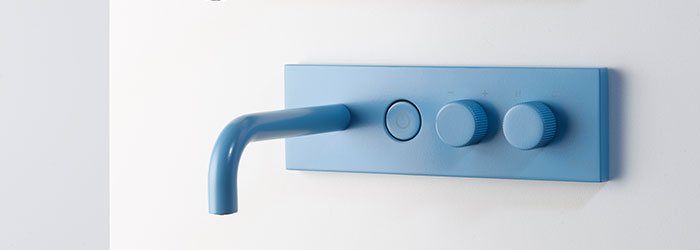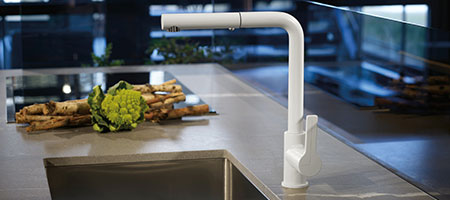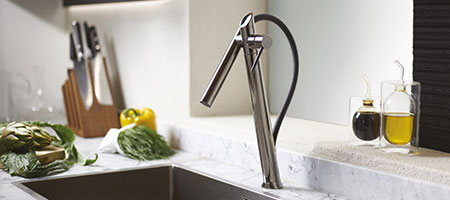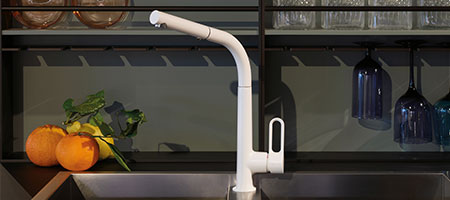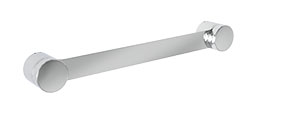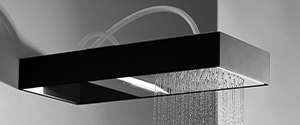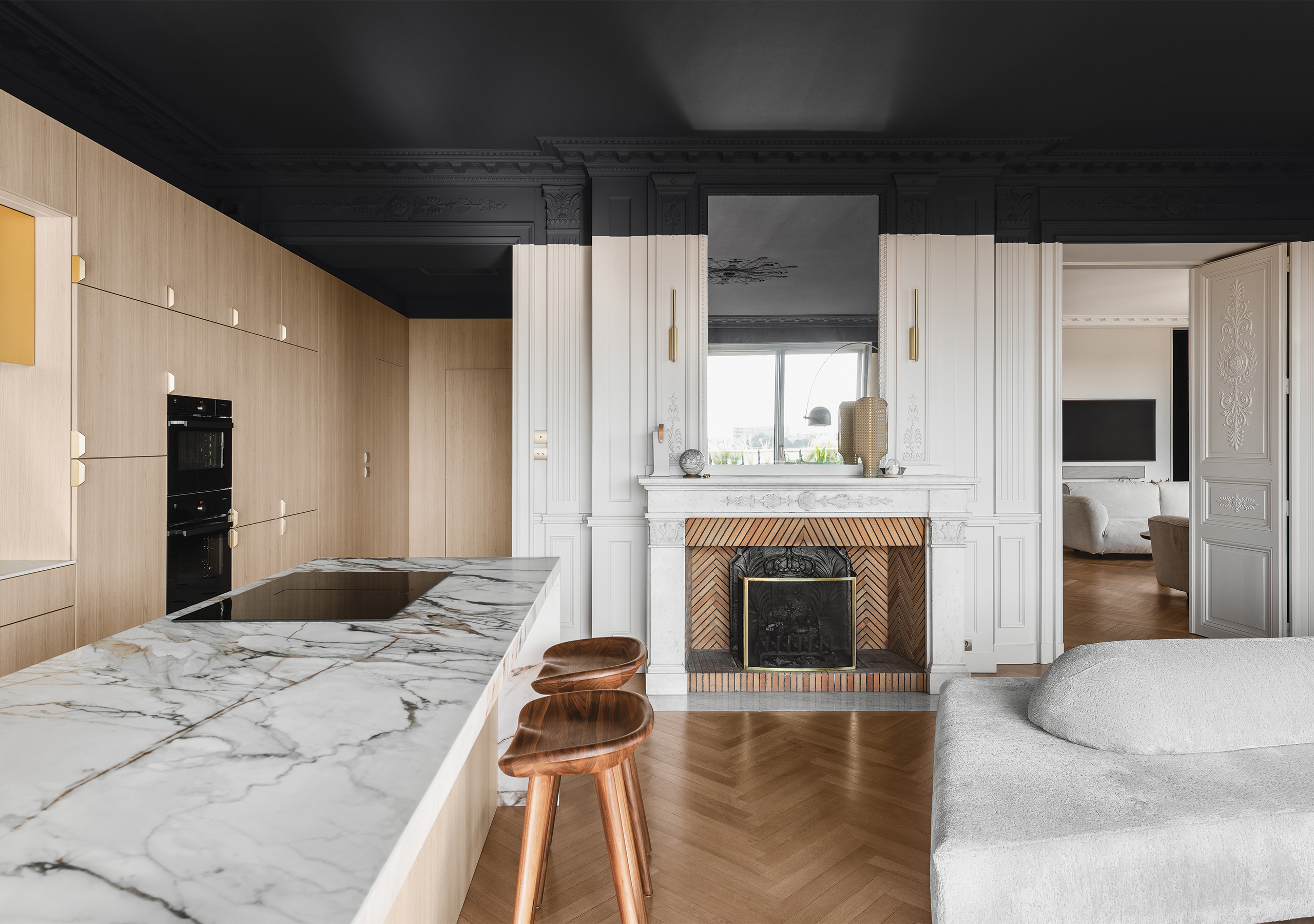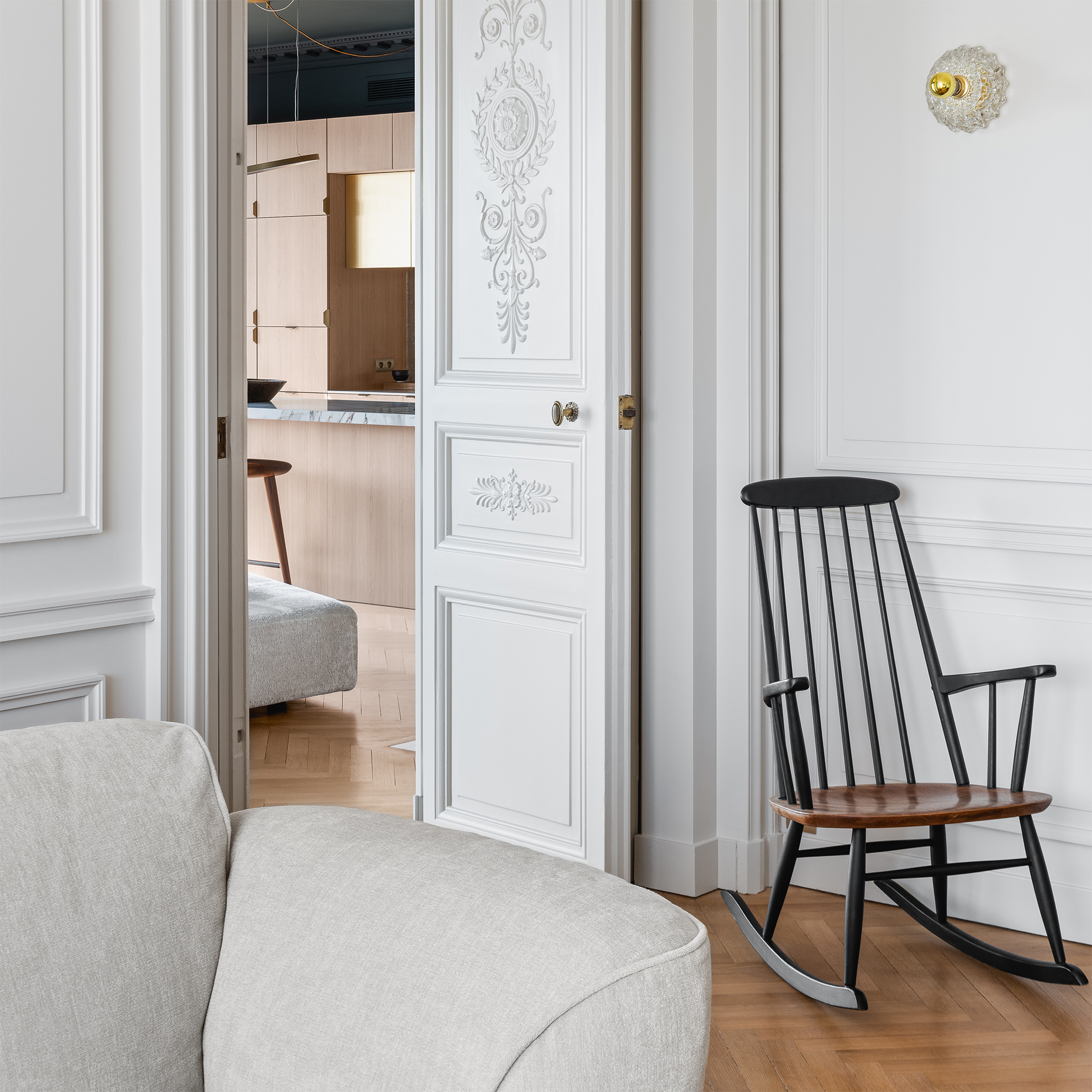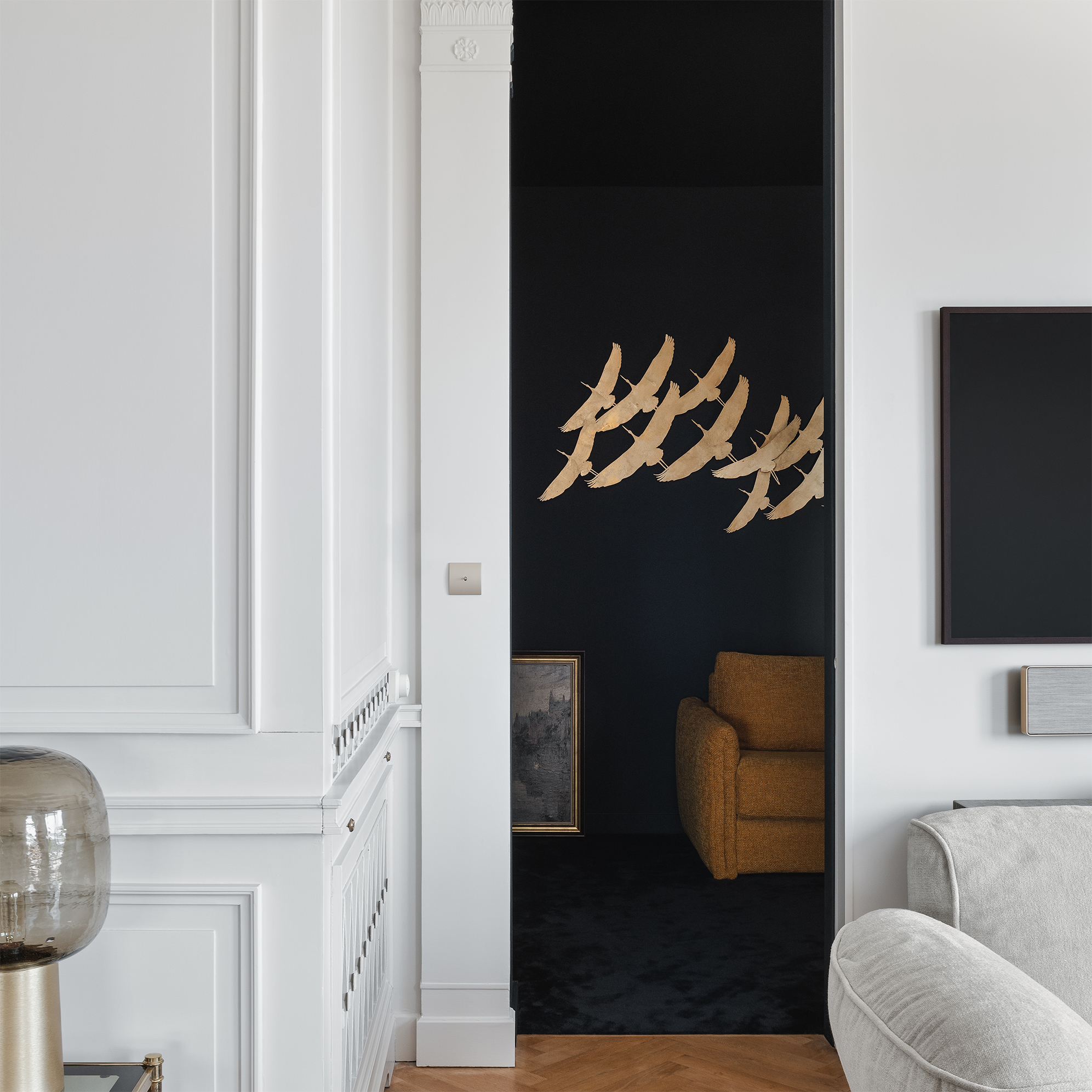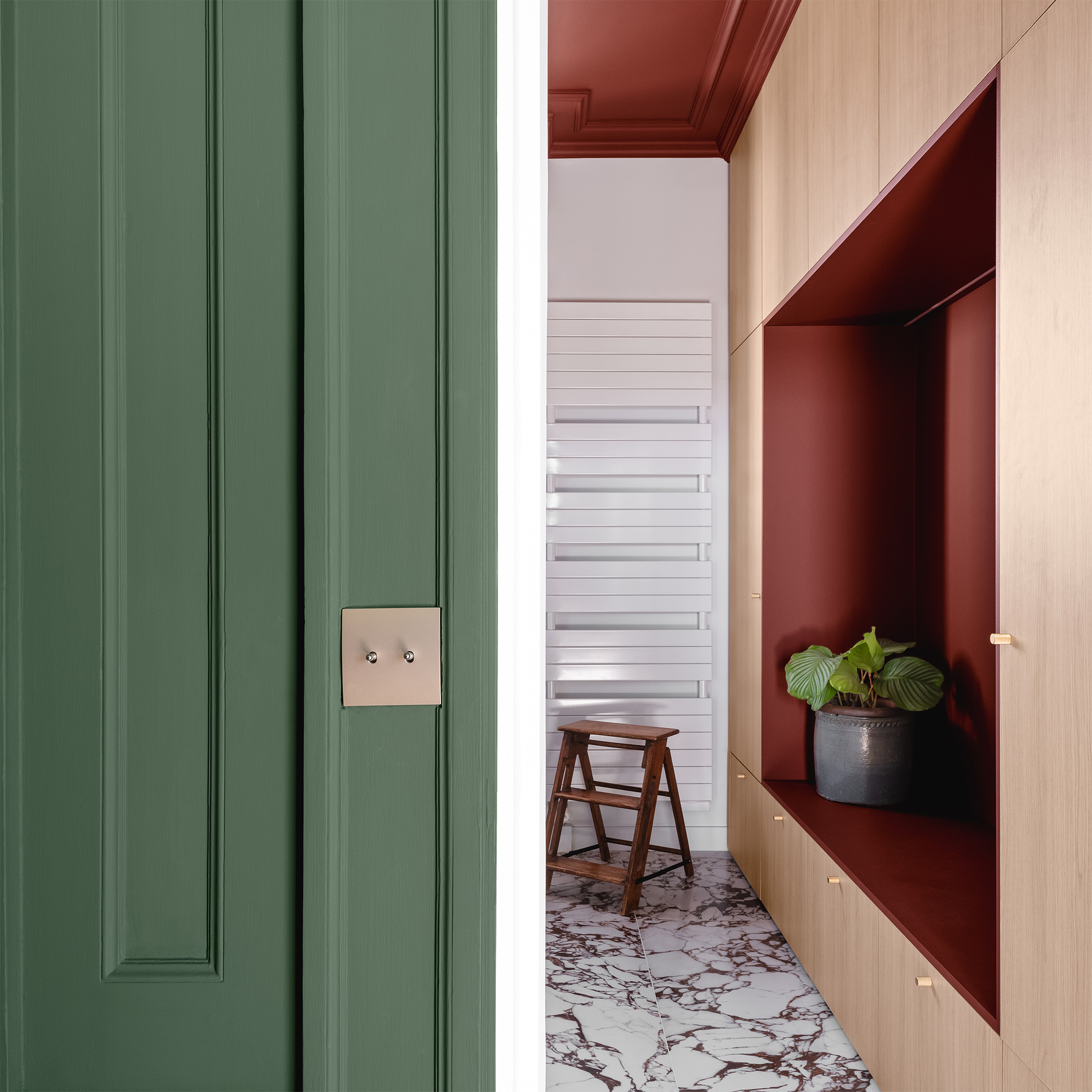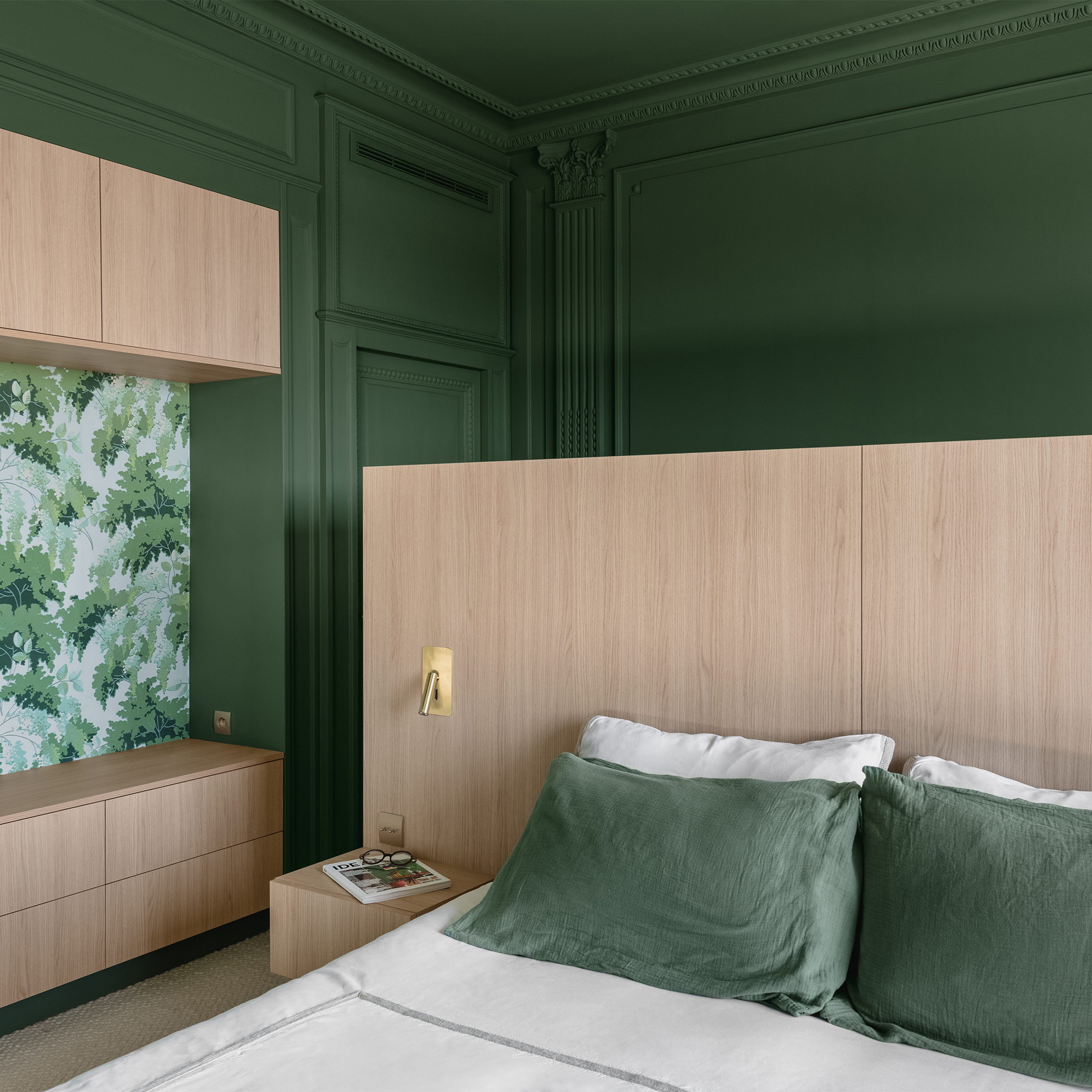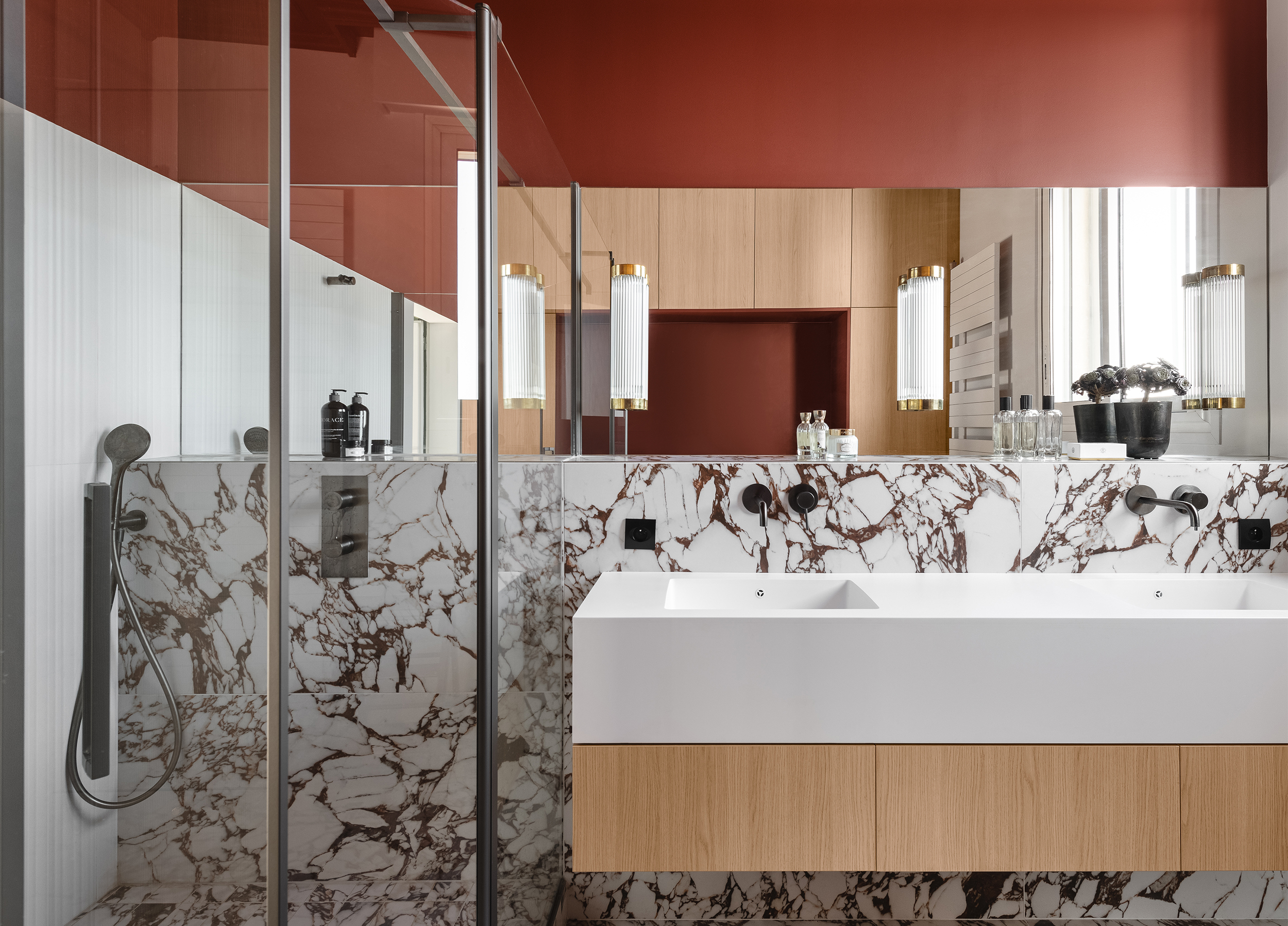- SAMMLUNGEN
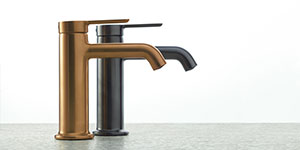
SNAP
Ausgeprägter Charakter, einmalige Formen und sorgfältig verhältnismäßige Krümmungen, die das Produkt streicheln: Merkmale, die das Gleichgewicht zwischen runden klassischen Formen und modernen Linien gestalten.
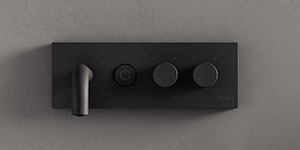
SWITCH ON
Switch on, eine Serie, die aus dem Wusch entstanden ist, das Duschsystem zu vervollständigen und zu erweitern, dessen Hauptvorteil darin besteht, die Wasserströme durch einfaches Drücken einer runden Taste ´´einzuschalten´´.

OUTDOOR
Außenbereiche sind wertvolle Oasen, die eine wichtige Umgebung für unsere Entspannung repräsentieren: die Fima Outdoor Kollektion wurde erstellt, um sie am besten zu genieβen. Die Kollektion erschafft neue Rhythmen und unveröffentlichte wohltuende Rituale durch eine funktionelle und ästhetische Formensprache.
- BAD
Aufsatzwaschtische in verschiedenen Höhen, wandhängende oder bodenstehende Waschtische … Unseres Kollektionsdesign gliecht sich zu den zugleichen Markttrend an und erbringt die Produkte zu verschiedenen Umstände, sowohl im Wohnbereich als auch Contract
Unsere Bidet Armaturen erlauben Kombinationen mit allen Keramiken, die sich auf den Market befinden. Sie rchten jedes Badenzmmer geschmacktvoll ein, ob klassisch oder modern.
Wohlbefinden schenken: Das Duschumgebung wird zu einem echten SPA durch die Kombination von Funktionalität, formaler Eleganz und hohen Personalisierungsmöglichkeit.
Alle FIMA Wannenprodukte sind hergestellt, um mit der vielfältigen zeitgenössischen Wannenformen am besten zu harmoneren. Sie garanrieren die absolute Projektsfreiheit, insbesondere in dem Contract Bereich.
- WELLNESS
SWITCH ist ein umfassendes und komplettes Duschsystem , das aus die Notwendigkeit nach einer verantwortlichen Verwendung der Ressourcen und Materialen und der zentralen Personalisierungsrolle entstanden ist
Möglichkeit das Wellness-Raum nach einer persönlichen Art zu gestalten, um Ihr Wellness-Erfahrung dank drei verschiedenen wasserversogungen zu bauen
Ästhetische Forschung, formale Strenge und distinktive Performances: STILL, ein ehrgeiziges Projekt, das eine neue Dimension des Wohlbefindes eröffnet.
Zehn mundgeblasene Glaskugeln, satin oder metallic, die die Form eines Wassertropfens hervorrufen, schweben im Duschraum in unterschiedlichen Höhen.
Harmonia ist eine Serie von sechs exklusiven Deckenbrausen, ein absolutes Gleichgewicht zwischen Wesentlichkeit, ästhetischer Strenge und Multifuntionalität, die dem Badenzimmer eine plakative Persönlichkeit verleihen.
Die Kopfbrause Moove kann an die Wand oder als Pendel montiert werden und kann vielfaltig vom Kunden aus den verschiedenen Varianten personalisiert werden. Dazu kann man noch die Oberfläche des Rahmens und der Module wählen.
- OUTDOOR
Dank seines essentiellen Designs von Davide Vercelli fügt sich OUT.SIDE elegant und diskret in die unterschiedlichsten Kontexte ein, vom heimischen Garten bis zum SPA eines Fünf-Sterne-Hotels.
Mit seinen einfachen, aber sorgfältig gestalteten Formen verbindet sich Ingiro mit einer neuen Idee von Flexibilität und Dynamik und fügt dank der verschiedenen Oberflächen ein dekoratives Element für Außenbereiche hinzu.
Eine neue Design-Lösung, die mit Detailgenauigkeit, eine starke dekorative Wert, Funktionalität und Umweltfreundlichkeit die neue Arten, um das Outdoor zu leben, wiederspiegel.
Das Ergebnis eines weiteren Forschungs- und Innovationsprozesses der in SWITCH vorhandenen Technologie, erbt SWITCH ON 316 ihre Linien und Funktionen, verfügt jedoch über einen neuen Einbaukörper mit extrem geringer Größe, um ein Produkt mit essentiellem Design zum Leben zu erwecken.
Die perfekte Kombination aus Design und Umweltschutz-Nachhaltigkeit, ein Produkt, das zeitlosen Stil mit essenziellen grünen Materialien verbindet. Die besondere Korrosionsbelastbariket und die bemerkenswerte Härte der Stahllegierung AISI 316L, die für FIMA-Produkte verwendet wird, sind eine Garantie für Qualität und Langlebigkeit.
- KITCHEN
SETTANTA29 ist ein praktische und funktionale Küchenwaschtisch, der von strenge Ästhetic aber mit zarten Ecken charakterisiert ist. Er verfügt über eine ausziehbare Dusche und einen schwenkbaren Auslauf, um das Wasser zu leithen, wo es gebraucht wird.
Aerodynamische und herausfordernde Linien, deren Design in drei Haupteinzelteile sich gliedert, die den tägliche Gebrauch funktional leisten. Der nach vorne gestreckte Körper ist so herstellt, um die Arbeit in der Küche zu erleichtern und eignet sich für alle Installationsarten und Spülen.
Skinny, Ausdruck einer entwickelten Projektsprache, ist in der Lage jede Küche aufwerten und sich mit jedem Stil perfekt integrieren, mit ein Gleichgewicht zwischen moderne und ergonomische Ästhetiken.
- ZUBEHÖR
- THERMOSTATEN
- EINBAUTEILE
- Collezioni

SNAP
Carattere evidente, volumi importanti, tante raggiature accuratamente proporzionate per accarezzare il prodotto, lasciandolo in equilibrio tra forme cilindriche classiche e linee moderne.

SWITCH ON
SWITCH ON, una serie nata dalla volontà di completare e ampliare il sistema doccia SWITCH, il cui principale plus è di “azionare” con la semplice pressione di un tasto a sfioro rotondo i flussi di acqua in corrispondenza dell'uscita stessa.

OUTDOOR
Gli spazi outdoor sono oasi preziose e rappresentano una grande risorsa per il nostro relax: per viverli al meglio nasce la divisione Fima Outdoor che crea nuovi ritmi e inediti rituali di benessere attraverso un linguaggio progettuale funzionale ed esteticamente accattivante.
- Bagno
Lavabi da appoggio di diverse altezze, lavabi a muro o a pavimento… il design delle nostre collezioni si allinea alle tendenze contemporanee del mercato rendendo adatti i prodotti a diverse situazioni sia in ambito abitativo che contract.
I nostri rubinetti per bidet permettono abbinamenti con tutte le ceramiche presenti sul mercato, arredando con gusto ogni bagno, classico o moderno che sia.
Regalare benessere: l’ambiente doccia diventa una vera e propria SPA coniugando funzionalità, eleganza formale ed elevata possibilità di personalizzazione.
Tutti i prodotti per vasca Fima sono studiati per armonizzarsi al meglio con le molteplici forme delle vasche contemporanee, garantendo un’assoluta libertà progettuale, soprattutto in ambito contract.
- Wellness
Nato dalla necessità di un uso responsabile di risorse e materiali e dal ruolo centrale della personalizzazione, SWITCH rappresenta un sistema per la doccia ampio e completo.
Possibilità di comporre l’ambiente wellness in modo personale per costruire la propria esperienza benessere grazie a tre diverse erogazioni.
Ricerca estetica, rigore formale e distintive performance: STILL, un progetto ambizioso che apre a una nuova dimensione di benessere.
Dieci sfere in vetro soffiato, satinate o metallizzate, che evocano la forma di una goccia d’acqua, fluttuano all’interno dello spazio doccia sospese a diverse altezze
Harmonia è una serie composta da sei esclusivi soffioni doccia a soffitto, equilibrio assoluto tra essenzialità, rigore estetico e multifunzionalità che conferiscono al bagno una personalità incisiva.
Con Moove è possibile costruire ad hoc in fase di acquisto il proprio soffione scegliendo le modalità di installazione, le varie configurazioni dei moduli e le finiture del telaio e dei moduli.
- Outdoor
Grazie al suo design essenziale, firmato Davide Vercelli, OUT.SIDE si inserisce con eleganza e discrezione nei contesti più diversi, dal giardino di casa alla SPA di un hotel a cinque stelle
Con le sue forme semplici ma curate nei minimi dettagli, Ingiro sposa una nuova idea di flessibilità e dinamismo, aggiungendo un cotè decorativo agli ambienti esterni anche grazie alle diverse finiture
Un’inedita soluzione di design che riflette i nuovi modi di abitare l’outdoor con uno stile fatto di cura dei dettagli, forte valore decorativo, funzionalità ed eco sostenibilità.
Frutto di un ulteriore processo di ricerca e innovazione della tecnologia presente in SWITCH, SWITCH ON 316 ne eredita le linee e le funzionalità ma vede lo sviluppo di un nuovo corpo a incasso dall’ingombro estremamente ridotto, per dar vita a un prodotto dal design essenziale
Un prodotto che coniuga uno stile senza tempo con un materiale dall’anima green. La particolare resistenza allacorrosione e la notevole durezza della lega di acciaio AISI 316L utilizzata per prodotti FIMA rappresentano garanzia di qualità e ne assicurano la durata nel tempo.
- Kitchen
Pratico e funzionale il miscelatore da cucina SETTANTA29, si caratterizza per l’estetica rigorosa ma rifinita da angoli morbidi. È dotato di doccia estraibile e canna girevole per convogliare l’acqua dove ce n’è bisogno.
Linee aerodinamiche e sfidanti il cui design si struttura in tre componenti principali che ne rendono funzionale l’utilizzo quotidiano. Il corpo protratto in avanti, è studiato per agevolare le operazioni in cucina e si adatta a ogni tipo di installazione e tipologia di lavello.
Espressione di un linguaggio progettuale evoluto Skinny è in
grado di valorizzare qualsiasi cucina e integrarsi perfettamente con ogni stile, offrendo un equilibrio di estetiche moderne ed ergonomiche eccellenti.
- Accessori
- Termostatici
- Corpi a incasso






